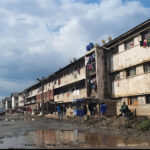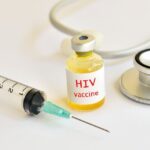Forex trading popularity in Africa has increased. There are many brokerages that offer Forex trading services, and the competition among them is quite high.
The FX market in Africa is strong and growing. There are many factors that contribute to this, including the increasing number of African countries adopting more liberalized foreign exchange regimes and the growing sophistication of African investors. It is generally agreed that illegal activities are relatively common in the Forex market in Africa. It is caused by a lack of a monitoring system and strict regulations. Additionally, the problem is a high level of corruption.
Accordingly, in this article, we will have a quick overview of the legislative requirements from central FX regulators in Africa.
The Main Regulators Of The African Forex Market
The main regulators of the FX market in Africa are the African Central Bank and the African Securities Exchange Commission. Their collaboration aims for permanent stability and growth in the Forex market. They also provide guidance to member countries on how to best manage their foreign exchange reserves. With these local governance regulators, the most prestigious authority companies are FSCA and M-Pesa which are responsible for fair trading in specific countries in Africa. Down below we will introduce each of them in more detail.
M-Pesa
M-Pesa is an African money transfer service provider where users can make financial transactions with mobiles. Since 2007, M-Pesa has operated successfully in Kenya.
The service provider is under the regulations of the Central Bank of Kenya. CBK has quite strict regulations to avoid fraud in transactions. M-Pesa as the major payment provider in the country can accept several brokers which are considered safe to try. Accordingly for Kenyan FX transfers, those who are accepted by M-Pesa, are considered trustworthy brokers. If you want to try Forex trading in Kenya with mpesa deposit, you have to follow specific instructions such as finding a broker that offers this option. After selecting the specific broker, it is needed to make your fund with M-Pesa. After your account is funded, you can start trading Forex pairs.
FSCA
The main regulation area of FSCA is the republic of South Africa. It is the main authority body that aims for fair trading with minimized fraud facts. . The FSCA also protects consumers by providing them with information about their rights and options when dealing with financial products and services.
FSCA is the regulatory body for non-bank financial institutions in South Africa. Among other things, the FSCA regulated FX brokers and dealers. In order to operate in South Africa, a Forex broker must have a Category I or II license from the FSCA. There are several requirements that potential licensees must meet in order to obtain an FSCA license, including having adequate capital, being a fit and proper person, meeting solvency requirements, and having appropriate systems and controls in place. Licensees must also comply with ongoing requirements such as reporting financial statements and maintaining segregated client funds.
ACB
The African Central Bank is a regional intergovernmental organization of central banks and its membership comprises 54 countries. The primary objective of the ACB is to promote monetary cooperation and economic integration in Africa.
In the continent, the central bank is the main regulator for managing transactions with foreign exchanges. The ACB also provides guidance on monetary policy to African governments and works with other regional central banks to promote financial stability in Africa.
In order to operate in the African Forex market, brokers must adhere to certain regulations set forth by the central bank. These regulations are designed to protect investors and ensure that only reputable and qualified firms are allowed to participate in the market. Some of the key requirements for brokers include being properly registered and licensed, having a minimum capital requirement, and maintaining segregated client accounts. failure to comply with these regulations can result in severe penalties, including fines and expulsion from the market.
ASEC
ASEC is a leading provider of FX market data in Africa. ASEC’s data covers all major African currencies including the Nigerian Naira, South African Rand, and Kenyan Shilling. ASEC’s data is used by banks, hedge funds, and other financial institutions to trade the Forex markets.
ASEC regulations for the Forex market in Africa state that all transactions must be conducted through a licensed broker. In addition, all brokers must provide clients with access to real-time quotes and allow them to trade on margin. These regulations are designed to protect investors from fraud and ensure that they have the information they need to make informed decisions about their trades.
To conclude, which regulators’ requirements are needed to consider is depending on the African country you are going to trade with. As the republic of South Africa and Kenya have local regulators for FX transactions, as other countries have. But the main point is to meet the requirements of the central bank of Africa because this is the main body that proves the trustworthiness of FX brokerage.

Follow @MyZimbabweNews












